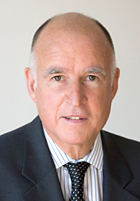
Healthcare workers in New York and California celebrated last week, as the two states were poised to pass legislation that would raise the minimum wage to $15 an hour.
The California Legislature approved a plan on Thursday that would raise the minimum wage incrementally, from the current $10 an hour to $15 by 2022. Gov. Jerry Brown (D) was expected to sign the wage increase, which will affect more than 440,000 of the state’s healthcare workers, into law on Monday.
While the exact cost impact of the wage hike hasn’t been determined, the cost will be “significant” because the state is home to 1,250 licensed nursing facilities, Deborah Pacyna, director of public affairs for the California Association of Health Facilities, said in a statement to McKnight’s.
“We took a neutral position on the bill, however, we support the concept of a statewide minimum wage because it is predictable and funded by the state,” Pacyna said.
LeadingAge California expressed disappointment that the legislation didn’t take regional economic differences into account, saying it could prove detrimental to the state’s rural providers.
“LeadingAge California is particularly concerned how such an increase will impact nonprofit providers in rural areas, along with the effects of the lack of reimbursement by public programs and how wage compression will further increase costs for those currently earn above minimum wage,” Eric Dowdy, vice president of policy and communications for LeadingAge California, said in a statement to McKnight’s.
The hike gained steam as the result of a ballot initiative launched last year by the SEIU- United Healthcare Workers West union.
In New York, a $15 minimum wage hike was included in a budget agreement reached by Gov. Andrew Cuomo (D) and state legislative leaders on Thursday. The wage provision would increase the minimum wage in New York City to $15 by the end of 2018. The rest of the state would raise the minimum wage to $15 incrementally, with some counties slated to hit the $15 mark by 2021, and others at a date yet to be determined.
“This schedule will certainly soften the impact compared with the initial proposal, it will be much less onerous,” Richard Herrick, president and CEO of the New York State Health Facilities Association, told McKnight’s.
The New York wage hike has been estimated to come at a cost of $3 billion to the state’s nursing home, home care and hospital industries, with the nursing home industry alone set to divert an estimated $600 million to salaries in order to meet the requirement.
“[The increase] will have a financial impact and that impact will grow with years,” Herrick said. “What is yet to be determined is where the financing may be for this.”
New York providers requested assistance from state officials earlier this year to help cover the funds needed to support the wage increase. There is some talk of future labor appropriations to help cover the increase, Herrick noted.




